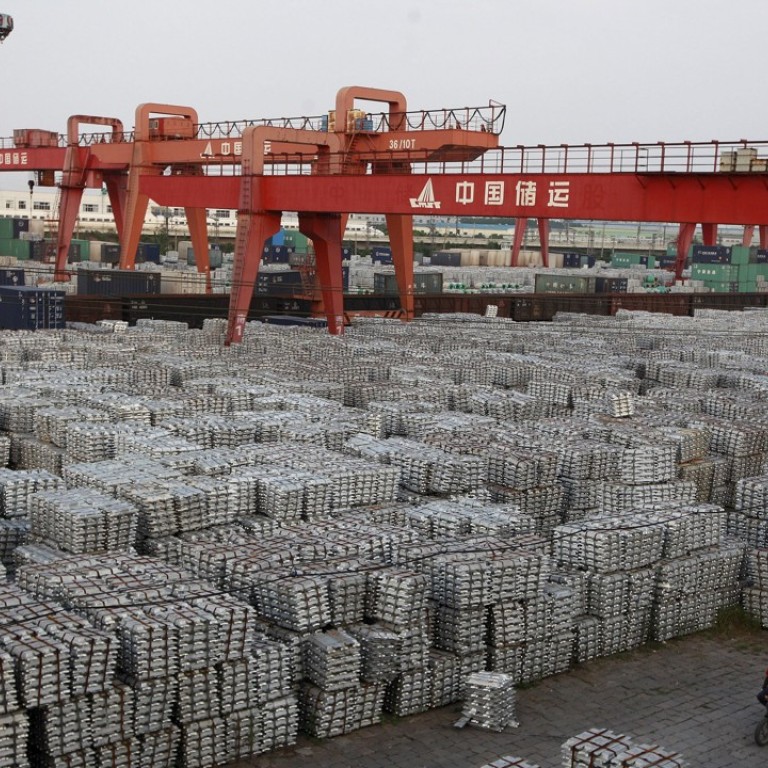
Citic Group extends US$1.02 billion financial lifeline to world’s largest aluminium smelter
Hongqiao agrees to sell 806.6 million new shares and US$320m of convertible bonds to Citic and the conglomerate’s unit CNCB (Hong Kong) Investment
Hongqiao agreed to sell 806.6 million new shares and US$320 million of convertible bonds to Citic and the conglomerate’s unit CNCB (Hong Kong) Investment, according to a statement to the Hong Kong exchange.
The sale of the new stock and the bonds – if they are fully converted into shares – could give Citic up to 13.3 per cent of Hongqiao, making the conglomerate the smelter’s second-largest shareholder.
The bailout will give Hongqiao much-needed capital to repay bank loans and bolster working capital, the company said.
Hongqiao has the capacity to produce 6.46 million tonnes of aluminium a year, surpassing the Russian giant Rusal in 2015 as the world’s largest smelter. It got to where it is by going on a spate of binge borrowing, funding its expansion through debt, even as the entire industry was beset by excess capacity, or the ability to produce more metal than customers want.
Net debt had surged to 62 billion yuan (US$9.3 billion) at the end of last year, or 137 per cent of Hongqiao’s shareholders’ equity, up from 97 per cent two years earlier.
Amid sagging aluminium prices and citing a “failure to obtain environmental protection approvals before building and operating the facilities”, the environment watchdog agency of Hongqiao’s home base in Zhouping county in Shandong ordered the company to idle half of its production capacity, the South China Morning Post reported last October.
The company shut down 2.6 million tonnes of annual smelting capacity, or 29 per cent of the total, as at the end of July, responding to an order four months earlier by China’s government.
Hongqiao said it will engage an independent third party to assess the financial impact, including the usable value of its assets, sales, potential asset impairment and depreciation.
The industry’s clean-up of excess capacity has led to higher aluminium prices which will help offset the negative impact, it added.
Citic Group, founded in 1979 to spearhead China’s overseas investments, is the largest conglomerate in the country, and run directly by the central government. Its investments, assets and businesses range from banking and finance to real estate and resources.
Citic has imposed a condition on its bailout, requiring Hongqiao to complete the audit of its 2016 financial accounts.
The company has yet to release its annual results for the 2016 financial year as at the end of March, as required by Hong Kong’s listing rules. Hongqiao’s previous auditor EY resigned in April over a disagreement with the client over ways to undertake an independent investigation into allegations raised by short seller Emerson Analytics of financial fabrication.
In a March report, Emerson alleged that Hongqiao had “fabricated” profits that vastly exceeds those of its peers via “underreported costs and subsidies” from “connected parties disguised as independent third parties.”
Hongqiao said the allegations and information in the report are “biasedly selected, materially misleading, untrue and unfounded” and that it would seek legal remedy against Emerson for defamation.
After EY’s resignation, Hongqiao engaged Baker Tilly Hong Kong Risk Assurance to perform “agreed upon procedures” on the audit.
Hongqiao last month said as Baker’s resources could not meet its deadline for completing the audit, it decided to appoint Shinewing (HK) CPA as its new auditor instead.

